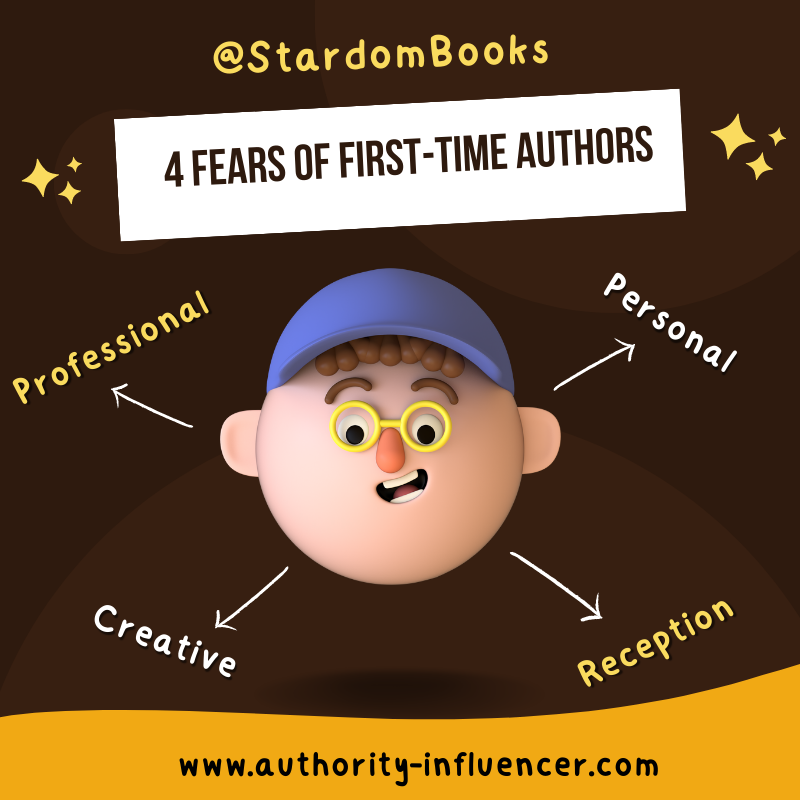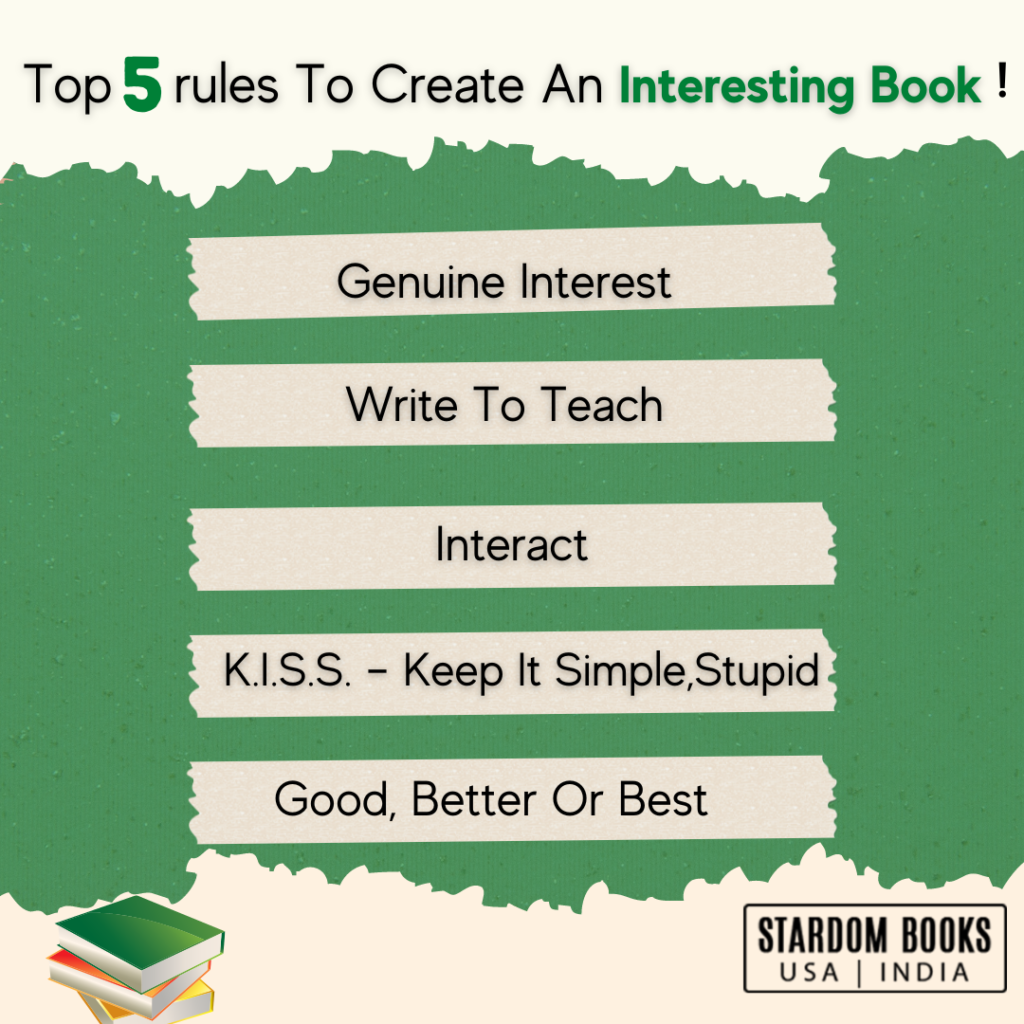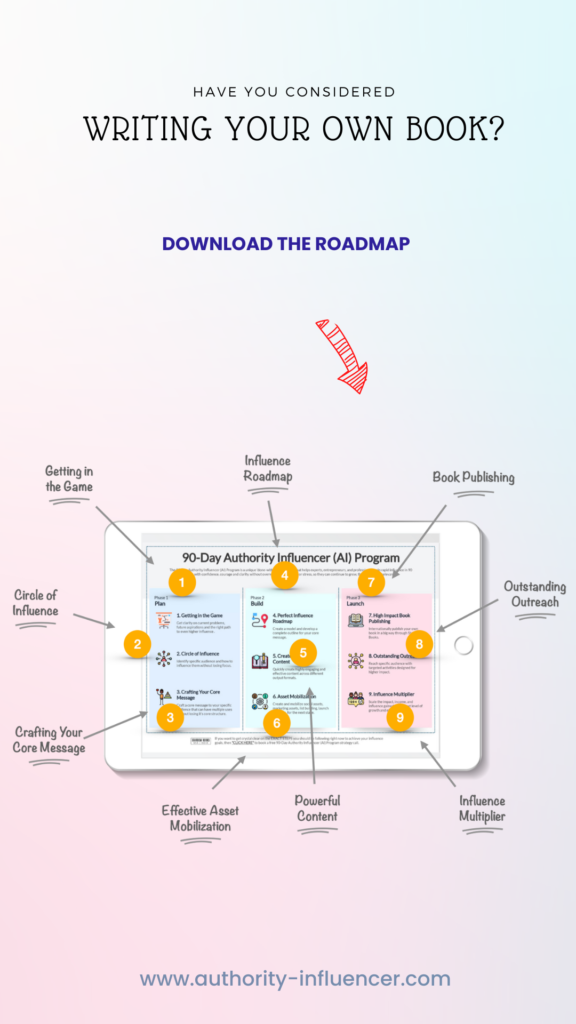✅Summary
Raam Anand, Chief Editor and Publishing Director of Stardom Publishing, has outlined five common mistakes that first-time authors make.
These 5 mistakes of first time authors include:
- Overthinking
- Starting With a Personal Story
- No Author Goals
- No Takeaways For Readers
- No Call To Action
He advises authors to set goals for their books, provide takeaways for readers to help them summarize the content, and include a call to action at the end of each chapter.
To help authors with the process, Stardom Publishing provides resources to give them a better understanding of author goals, as well as strategies and techniques to help make the writing process easier.
For more information, visit: https://stardompublishing.com/
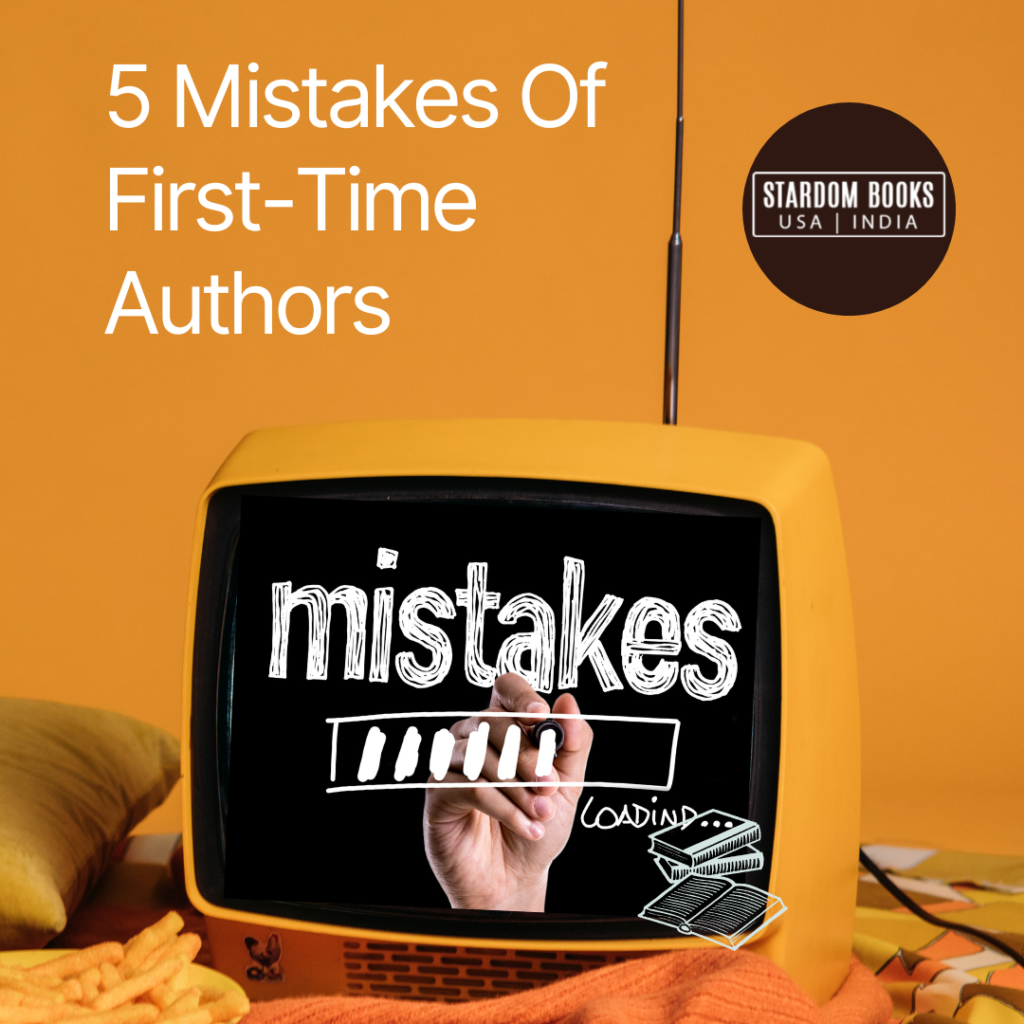
✅Transcript
Welcome back once again, Raam Anand here. Chief editor and publishing director to hundreds and even thousands of bestselling authors worldwide.
In this video, I want to teach you about or tell you about the five big mistakes that first-time authors make.
Sometimes it happens like this, people put their effort, time, investment, lot of things goes into creating a perfect book.
When the book is released, it doesn’t perform, or it doesn’t sell, or it doesn’t get the kind of reaction that the author initially wanted from people.
The reasons could be one of these.
Let’s explore all these five big mistakes of first time authors
1)Overthinking – Mistakes of first time authors
Usually, first-time authors try to think about their book; they want it to be the best.
So, what goes into this is you start thinking and then thinking and then over-thinking on that feeling upon thinking;
It so happens that most times, it gets huge, it gets messy, and then it becomes a big hot soup that is not fun anymore, which is why so many people quit writing their books.
They have tried they started to think about it.
Then the overthinking kicked in, over-information kicked in, they get into and into like finding all there is to see about writing a book, how to do this, how to do that, how to sell it, how to edit it, how to proofread, they start thinking about the cover.
Then they start feeling overwhelmed, leading to either procrastination or entirely dropping the project.
Many people believe I am not fit to become an author, and they give up on their dreams, which is unfortunate, but it is not like that. We start blocking this at Stardom Publishing one step at a time.
We hand-hold our authors like we help them think about the first step how do you take your journey?
Example
How do you start your journey of 200 miles? You can’t jump 200 miles, can you?
You first start with your first step and then another step by step, and that’s that way you reach your destination, and some ideas, strategies, and techniques can make the journey faster.
For example, you had a plan. You will know exactly where you will stop on the way, where you will have your refills, and where you will eat if you need to.
So, like that, the entire project of writing a book can be broken down into manageable chunks so that you can take this one step at a time and still complete the task without feeling overwhelmed.
2)Starting with only a personal story -Mistakes of first time authors
This is another big mistake people sometimes make when writing a book about their journey, biography, challenges and obstacles, and how they want to write about all this.
It’s okay if you want to express your journey and share about your journey, that’s fine, but if you try to fill that up and fill your book with your journey, that’s not a good way to write a book.
Especially if you are going to write your first book unless you already have a big fan following, maybe you are a celebrity, perhaps you are an actor, maybe you are a musician, maybe you are someone who has got a million followers on your social media handles.
Yes, because your fans and followers want to know what’s happening in your personal life. They are curious, and you can satisfy their curiosity by writing about your personal stories.
Non – Fiction Books
Otherwise, in the non-fiction category, which we are dealing with, the leadership books, non-fiction books, how-to books, business books, and your professional books.
These books shouldn’t be only about you on your journey.
Instead, they should also be about your customer’s journey or the reader’s journey and their problems, issues, and challenges so that they can resonate better with and connect with the content inside your book and thereby connect with the author.
So, sharing your stories is good. It’s okay if that’s not the only thing you plan to write in your book.
3)No Author Goals – Mistakes of first time authors
All right, many people want to write books and do write a book, even though the number of people who write books is minimal.
But, out of all these books, let’s say 100 books written by first-time authors, 95 are written without goals. That is a reason why 95 of them fail in the marketplace.
The first reason is they still need to set the author’s goal. And what do I mean by that?
Every book should start with a goal for the author, and that’s what we teach at Stardom Publishing.
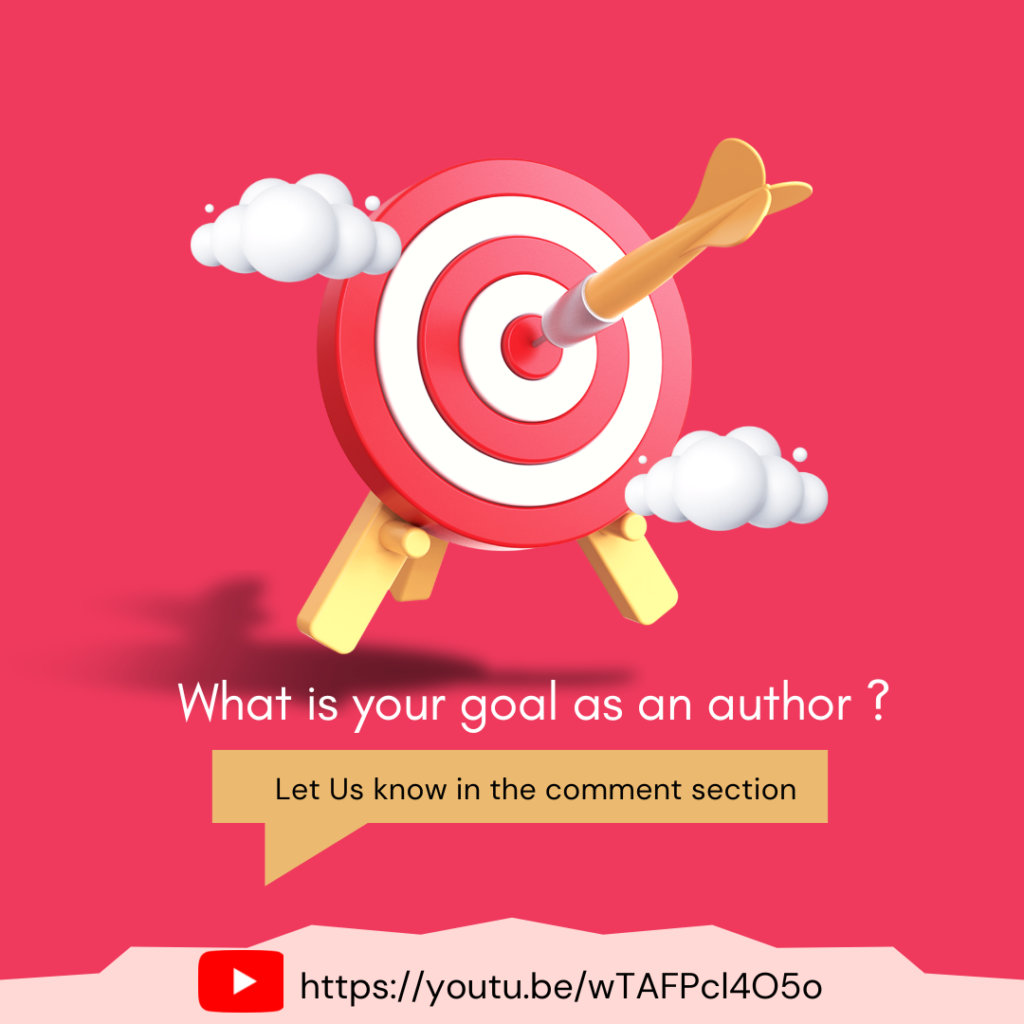
When people think about writing a book, the first thing that pops into their mind is, what will be my book’s topic? That’s all right, but we must also figure out two other steps before that.
Step one is the author’s goals
- What is the goal of this book?
- Why am I writing this book?
- What is the reason behind reading this book
- what do I want the reader to do for me or my professional or personal life?
That is the number one thing you should know.
Along with that, we also need to understand the reasons or the goals; like
- If you want to get into the media, that’s a good goal.
- If you want to establish your credibility in a specific marketplace, that’s very good.
- If you want to leave a legacy behind, that’s a valid goal, too
- lead generation – a valid goal.
So, like that, there are several goals you can attach your book to so that it becomes purposefully written, which resonates with people and gives it direction.
It’s not just like, you know, throwing your net randomly and expecting to catch a large school of fish. So that’s what happens. Having a goal is a significant impediment.
If you want to browse the different kinds of goals and choose one of those goals which could be valid for your next book, go to stardompublishing.com, scroll down, and you’ll see several goals.
If your goal is to generate leads, and this is the kind of book you must create, that’s what happens. Along with plans, there is also something called an aspirational level.
You don’t want to write a book to fulfill a goal; you also want to reach a higher level of aspiration for yourself.
We can combine these two things to the goal, add that aspirational value to it, and then think about what topics can help you resonate with the audience with those topics as well as these aspirational values and your goals.
4)No Takeaways – Mistakes of first time authors
Next one, No Takeaways; that’s for the readers I am talking about.
Every book should have some takeaways; every chapter should have a takeaway. You should provide a bullet list of takeaways at the end of the chapter for several reasons.
One is it will help you summarize the entire chapter for people who are, you know, fast readers. You can summarize the whole chapter in 4,5 points.
The second thing is it looks good when people read this as a book.
Third, the most crucial point is that it will help you market and sell more books; how?
Because people, when they read your books, want to talk about it. And if you give them their takeaways for every chapter, So that’s why I recommend takeaways;
You decide and provide them in the form of a bullet list at the end of not just the book but at the end of every chapter.
If you can do that, that’ll be wonderful.
If you do not, the readers are left mid-way, like when you finish chapter one, when somebody reads your book, they read through chapter one, and now we can give them the bullet points.
You can add the last point to the next chapter, where we’ll learn about A, B, and C—that way, you bring them back into your book.
It would help if you let your readers close the book, put it back on the shelf, and perhaps never return to it again.
You are giving them a reason to segue into the next chapter. That’s how you design books.
5)No CTA – Mistakes of first time authors
Number 5 – the fifth one is a really, really a killer No CTA . What do I mean by that? No CTA
CTA is short for call to action. What is a call to action? What do you want your reader to do after they read your book?
- Do you want them to come to your website?
- Do you want them to give you their name, email address, and phone number?
- Do you want them to come and visit you?
- Do you want them to go to, you know, opt-in to buy your stuff?
- Do you want them to go and watch your videos?
You must have something more to give your readers, don’t you? And this CTA… most authors miss this.
Tips For Writing Non -Fiction Book
Especially in the non-fiction category, I highly recommend marking this with a star, underlining this, writing it down, putting a highlighter on this.
Make sure there is always a call to action, not just at the end of the book give a call to action at the end of every chapter.Just like the previous step takeaways.
What if your book contains ten chapters? At the end of every chapter, you have a call to action.
At the end of the first chapter, you give a call to action to go to a website. In the second chapter, you provide a call to action to download a PDF.
At the end of chapter 3, maybe you give them a chart or an image or an assessment that they can come and access somewhere on your website.
Perhaps chapter four CTA could go, and signup for you or subscribe to your YouTube channel or join your newsletter on LinkedIn or join your group on Facebook.
The vital idea the takeaway for you here is that we have to try and integrate people from consuming your information differently.
Books are one way they consume information, but you can also share your information on other platforms where you can interact with your readers.
So, you also want to build your fan following; you want to make your tribe and your network, so giving a call to action inside every chapter will help you do that as well. And hope this was useful for you.
If you need more information or more such strategies more such tactics, and if you want to access my brand-new course that will help you write and create your best-selling book manuscript.
Website Details:
Visit StardomPublishing.com and go there get all the resources.
There are some free resources available there as well.
Check out the course and if you think it is good for you, subscribe to it as well; let’s see you let’s see each other in another video; until then, keep smiling, believe in yourself, and get all the best things in life.
✅Book Writing Workshop
Have you written a book yet? Well, now you can… because USA publisher “Stardom Books” has just launched it’s “Bestseller Bootcamp”…
The world’s greatest book writing program for first-time aspiring authors, growth-oriented experts and serious leaders.
This is advanced, high-level stuff (not some cheap online course or a shortcut) — and brought to you directly by the publishing house.
Bestseller Bootcamp is where the world’s top achievers go to create and publish their own bestsellers. You can do it too… from scratch… even if you have never written before.
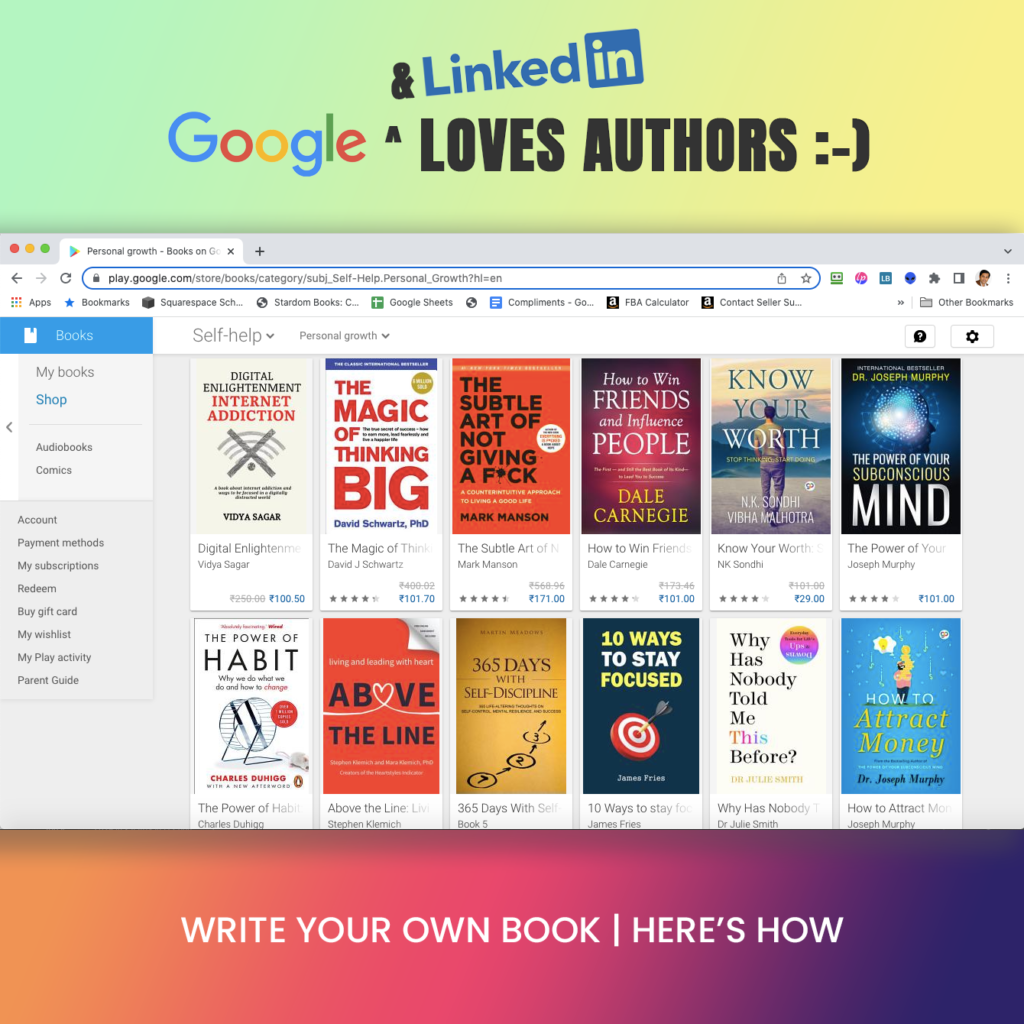
For More Details: https://stardompublishing.com/
✅Conclusion
If you find this blog helpful, share this blog and follow us on the social media platform for more updates.
✅Follow Stardom Books For More Updates:
►Facebook: https://www.facebook.com/stardomalliance
►LinkedIn: https://www.linkedin.com/company/stardom-alliance/
►Twitter: https://twitter.com/raamanand
►Instagram: https://www.instagram.com/raam.anand.stardom/
►YouTube: http://www.youtube.com/user/infoyogis?sub_confirmation=1
